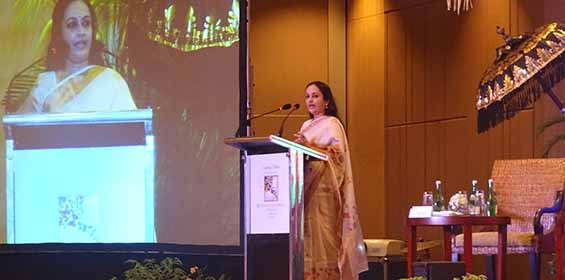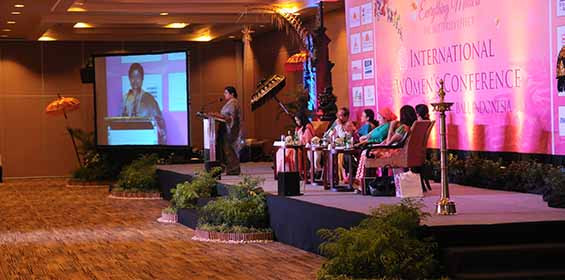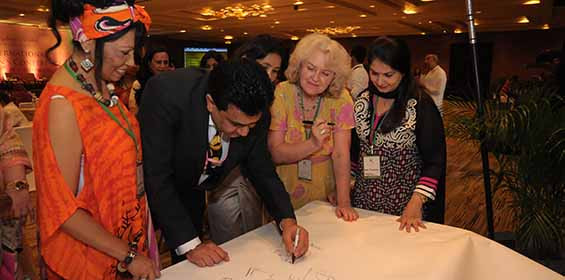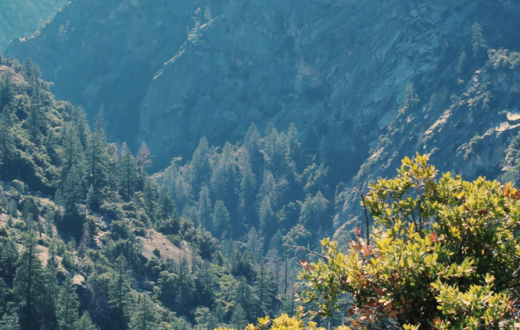Excerpts from the Speech of Ms Savita Mahajan Deputy Dean, Indian School of Business, India.
Corporations are a collection of individuals that come together for an economic purpose. They really have no conscience, soul of their own. It is collective consciousness of the individuals who work in corporations that can make a difference. The choices that corporations make about the use of resources is determined by the relative pricing. So really there are only two things that influence the choice corporations make about what resources they use and how much they use and what they do with the environment. One is ‘public policy’, i.e., government can enact policies that either make certain resources more expensive by taxing them or make certain resources cheaper by subsidizing them. So that changes the relative pricing of various resources and that can influence the choice corporations make. But ‘individuals’ have a conscience and their consciousness about a social cause and benefits of the choices that are made is different from that of corporations which I said don't have a conscience of their own.
Companies that go beyond what we normally expect and imagine them to do are those that are lead by individuals in leadership positions. They do have conscience and they do actually have a vision. They can see the impact of their decisions in the long-term and they can envision, what the implications for the relative pricing of the resources can be in the future and not just today. The other thing that influences companies, their reputation, as we all have seen in the last couple of decades, are key stockholders- key investors, employees, even consumers can boycott companies if they believe that their products are being made in a manner that is not sustainable and is harmful for the environment. But once again each of these categories is a group of individuals who can exercise that influence and sort of push companies to take right decisions. I also believe that a large part of the pressure that we see on natural resources around us like on water, clean air or minerals, is driven by the consumers’ desires or that of individuals.
We consume and buy more than we need. Certainly all of us in this room think this as true, but we do so because we can afford it. We waste water because it’s cheap and in today’s economic price it’s not very expensive. So we are not careful how we use it, but when you realize that no amount of money can buy you clean water or fresh air, then you sit-up and think because the relative pricing in terms of what you perceived had been cheap versus it’s impact on your health, which is priceless, makes you sit-up and think what you are doing is right or not, so the agent of change is really the individual, each one of us. I think the other truth is that we can all change only ourselves, not others. I think many times we see so much happening around us, so much to neglect and we tend to say to ourselves, how does it matter if I do something different it’s too much of an ocean, it’s too overwhelming a problem. Nothing that I do may impact. But one of my lessons or learnings through this spiritual journey has been that actually it’s not true. You know in management job we have this theory about tipping point and what it says is that you need a very small and critical mass of people to think in a particular fashion for that change to be very impactful. I guess a bit like butterfly effect, so individual consciousness and then collective consciousness. I think we all know through Guruji’s teachings that actually ‘you’ can affect a change and you don’t need everybody in the world to change for the change to happen. The good news i think is that some change is happening. Corporations are changing. There are many I can name who are conscious of what they are doing to the environment and these are you know sometimes much maligned multinational corporations but I do know that companies like PepsiCo, Coco Cola, Shell and several others are doing a lot to preserve the environment, may be in their own self interest, but so what! They are conscious of it and they are doing a fair bit.
I think even more encouraging is that our children, I believe, are more conscious about conserving than we were at their age. May be we grew up in a life of scarcity, so our desire was, to sort of, get more for ourselves, where as they may have grown up in abundance. But I definitely see that the ‘Generation Next’ is more conscious about conserving the environment. I’d like to end by saying that there is every grain of truth in the saying that each one of us has to ‘be the change we want to see in the world’.









































